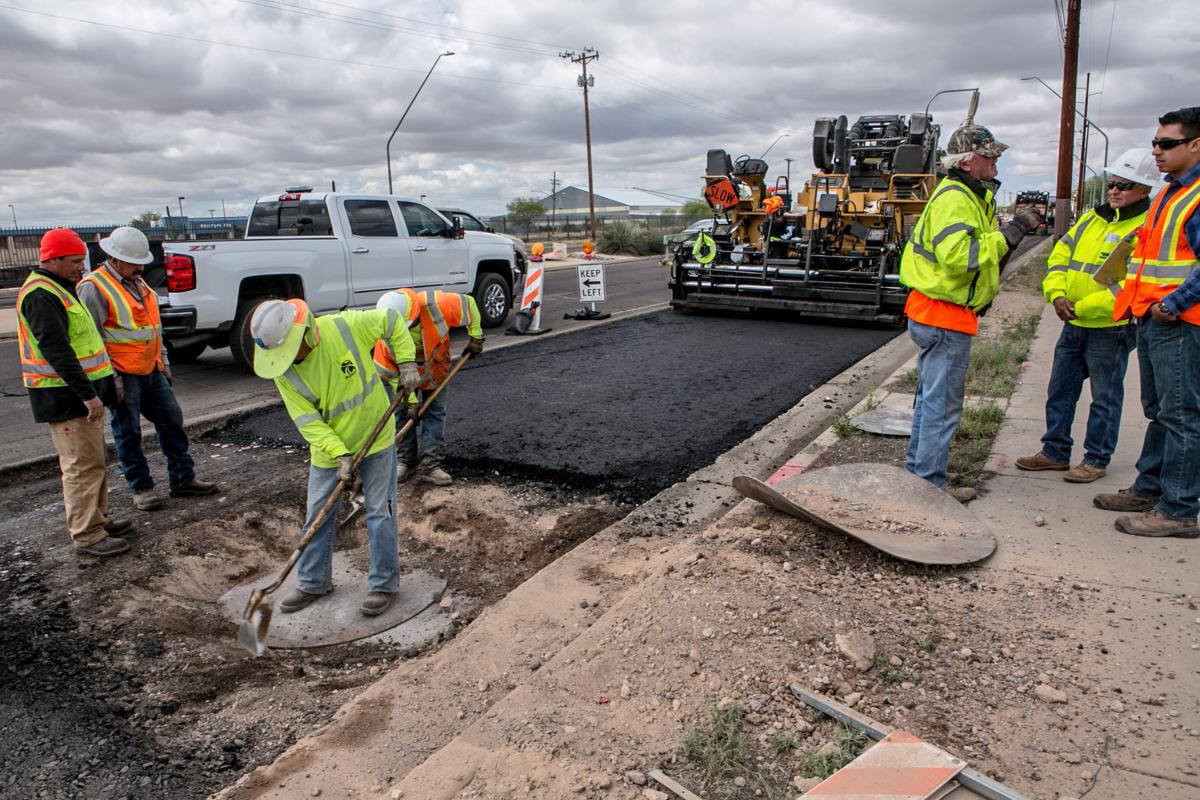By a 3-2 majority, the Board of Supervisors approved a tentative $1.27 billion Pima County budget Tuesday that includes a new 25-cent property tax whose proceeds would be dedicated to repairing local roads in both incorporated and unincorporated areas.
The board also approved a cumulative 11 cents in cuts to three other property taxes, which would result in a net 14-cent increase for every $100 of valuation next fiscal year if the final budget is approved unaltered in June. County officials say rising property values would absorb the 25-cent tax entirely by the second year, meaning that the 14-cent hike could eventually be eliminated.
For the average homeowner, the increase would result in a $23 jump in annual property tax burdens for the taxes controlled by the supervisors.
If adopted, the 25-cent property tax would bring in around $19.5 million in the first year, $8.2 million of which would go to unincorporated areas, with the remainder split among the city of Tucson and other towns based on relative net assessed value.
People are also reading…
The tentative budget sets a cap on the property tax rate, meaning that the supervisors could ultimately approve a budget with a lower rate, but not with a higher rate. Final budget adoption is set for June 20.
Citing concerns about financial impacts and how the county spends transportation dollars, Supervisors Steve Christy and Ally Miller voted against the measure, reversing their previous “reluctant” support.
Miller, who said some roads in her district resemble those of the Afghan city Kandahar, claimed that much of the county’s share of the Highway User Revenues Fund is not going directly to road work, a claim contested by other county officials.
“Putting this on the backs of the property taxpayers, there is no incentive for this board to get their priorities straight,” Miller said.
Though now opposed to the property tax, Miller said she was “negotiable on” a county sales tax, which would require a unanimous vote of the board.
Christy said he was most concerned about the tax increase’s potential impact on fixed-income residents in his district, many of whom will be impacted by the city of Tucson’s recently approved half-cent sales tax, as well as by rising utility costs.
“The property tax is just one more,” he said.
Responding to his fellow supervisors, Ramón Valadez said the criticism of the plan doesn’t solve the roads problem, and help from the state or federal government is not on the horizon.
“What we have in this proposal, whether you like it or not, it is an opportunity to finally step up to the plate,” he said.
The proposal by Pima County Administrator Chuck Huckelberry calls for supervisors to have control over the process to determine which local roads to prioritize for repair and preservation, though the entire board would eventually have to approve the projects.
Supervisor Richard Elías raised concerns about that arrangement, describing it as potentially “porky.”
Before the vote, Valadez asked that the county staff be directed to “come up with a public and transparent process for distribution of the road property tax monies,” which was approved.
Before the vote, the supervisors heard from supporters and detractors of the tax proposal.
Ana Henderson, the first vice chair of the county Republican Party, said the property tax, coupled with the recently approved Tucson sales tax and recent utility hikes, is making it difficult for families to stay in the county.
“This has gone on for a very long time and it’s unsustainable,” she added.
Foothills resident Brad Johns, on the other hand, said the additional property tax burden pales in comparison to the costs of his recent vehicle repairs, which he said the woeful state of streets in the county played a role in.
“I’ve spent $500 on front suspension repairs, and another $100 on wheel alignment and God knows how much on tires,” he said. “I don’t know how much this damage was caused by the potholes in our local streets, but it’s safe to say it’s a contributing factor.”
Contact: mwoodhouse@tucson.com or 573-4235.












